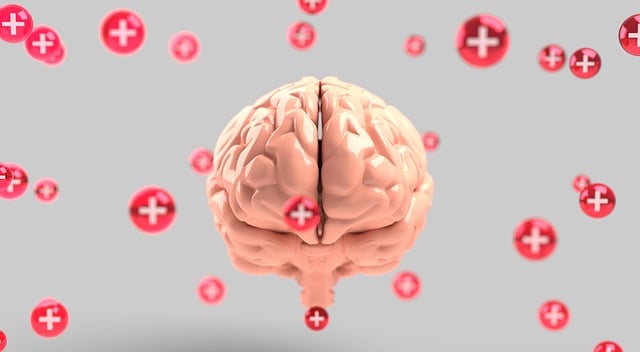Aurora Christian Counseling Therapy addresses misdiagnosis of mental health conditions through multifaceted strategies, including comprehensive evaluations using evidence-based practices, standardized assessment tools, continuous training workshops, and stigma reduction efforts. They prioritize early intervention to prevent condition escalation, improve long-term recovery rates, and offer sensitive care for diverse patient backgrounds.
Mental illness diagnosis accuracy is a critical issue, with misdiagnosis rates as high as 20-30%. This article explores efforts to improve diagnostic reliability, focusing on strategies employed by leading practices like Aurora Christian Counseling Therapy. We delve into evidence-based methods, the significance of early intervention, and continuous training’s impact on patient outcomes. By understanding the challenges and implementing effective solutions, we can enhance mental health care delivery. Discover how these approaches can make a tangible difference in patient lives, especially through the lens of Aurora Christian Counseling Therapy’s innovative practices.
- Understanding the Challenge: Misdiagnosis Rates in Mental Health
- Aurora Christian Counseling Therapy's Approach to Enhancing Diagnosis Accuracy
- Evidence-Based Strategies for Improving Diagnostic Reliability
- The Impact of Early Intervention and Continuous Training on Patient Outcomes
Understanding the Challenge: Misdiagnosis Rates in Mental Health

Misdiagnosis rates in mental health remain a significant concern within the industry. Studies indicate that many individuals struggle with undiagnosed or incorrectly identified mental health conditions, which can lead to ineffective treatment plans and prolonged periods of distress. This challenge is particularly evident in complex cases where symptoms overlap between various disorders. For instance, depression and anxiety often coexist, making it difficult for even seasoned professionals to distinguish between them accurately.
At Aurora Christian Counseling Therapy, we recognize the need for improved diagnosis accuracy as a critical step towards effective treatment. We strive to provide comprehensive evaluations using evidence-based practices, such as Compassion Cultivation Practices and Trauma Support Services, to ensure every client receives an accurate assessment. Additionally, our Stress Management Workshops Organization offers valuable resources to empower individuals with self-care strategies, complementing professional therapy and fostering better mental health outcomes.
Aurora Christian Counseling Therapy's Approach to Enhancing Diagnosis Accuracy

Aurora Christian Counseling Therapy (ACCT) stands out in its commitment to enhancing mental illness diagnosis accuracy. They employ a holistic approach, recognizing that mental health is intricately linked to overall well-being. ACCT doesn’t just focus on symptoms; they delve into clients’ life experiences, cultivating compassion and understanding. By integrating self-care routine development for better mental health, their practitioners help individuals gain insights into their emotional and psychological states.
This approach not only improves diagnostic accuracy but also equips clients with confidence-boosting strategies. Through various techniques, such as compassion cultivation practices, ACCT aims to create a supportive environment where individuals feel heard, validated, and empowered to take charge of their mental health journey.
Evidence-Based Strategies for Improving Diagnostic Reliability

Improving diagnostic reliability in mental illness detection is a multifaceted endeavor that leverages evidence-based strategies. At Aurora Christian Counseling Therapy, we prioritize these methods to enhance the accuracy and consistency of diagnoses. One such strategy involves utilizing standardized assessment tools tailored to specific disorders, ensuring that professionals apply uniform criteria across cases. This standardization minimizes subjective bias, leading to more reliable outcomes.
Additionally, integrating continuous training in diagnostic practices for mental health professionals is paramount. Workshops and seminars focusing on keeping up with the latest research and clinical advancements equip practitioners with the knowledge to make informed decisions. Mental illness stigma reduction efforts also play a significant role in fostering an environment where individuals feel comfortable seeking help without fear of judgment, thereby promoting more accurate diagnoses and effective emotional healing processes.
The Impact of Early Intervention and Continuous Training on Patient Outcomes

Early intervention plays a pivotal role in improving patient outcomes for those dealing with mental illness. By implementing programs that encourage open conversations and swift access to resources, Aurora Christian Counseling Therapy aims to reduce the stigma associated with seeking help. This proactive approach allows individuals to receive timely support, preventing conditions from escalating and fostering better long-term recovery rates.
Continuous training is another cornerstone of enhancing diagnosis accuracy and patient care. Healthcare provider cultural competency training equips professionals with the skills to navigate diverse patient backgrounds and beliefs, ensuring sensitive and effective treatment. Crisis intervention guidance further complements this by empowering practitioners to handle acute situations, ultimately improving patient safety and satisfaction. Such efforts collectively contribute to a more inclusive and compassionate healthcare landscape for individuals navigating mental illness.
Mental illness diagnosis accuracy is a multifaceted challenge, with misdiagnosis rates highlighting the need for improvement. Organizations like Aurora Christian Counseling Therapy are at the forefront of enhancing diagnostic reliability through innovative approaches and evidence-based strategies. By focusing on early intervention and continuous training, healthcare professionals can significantly impact patient outcomes, ensuring more effective treatment plans tailored to individual needs. These efforts collectively strive to revolutionize mental health diagnosis, with the ultimate goal of improving patient lives.














